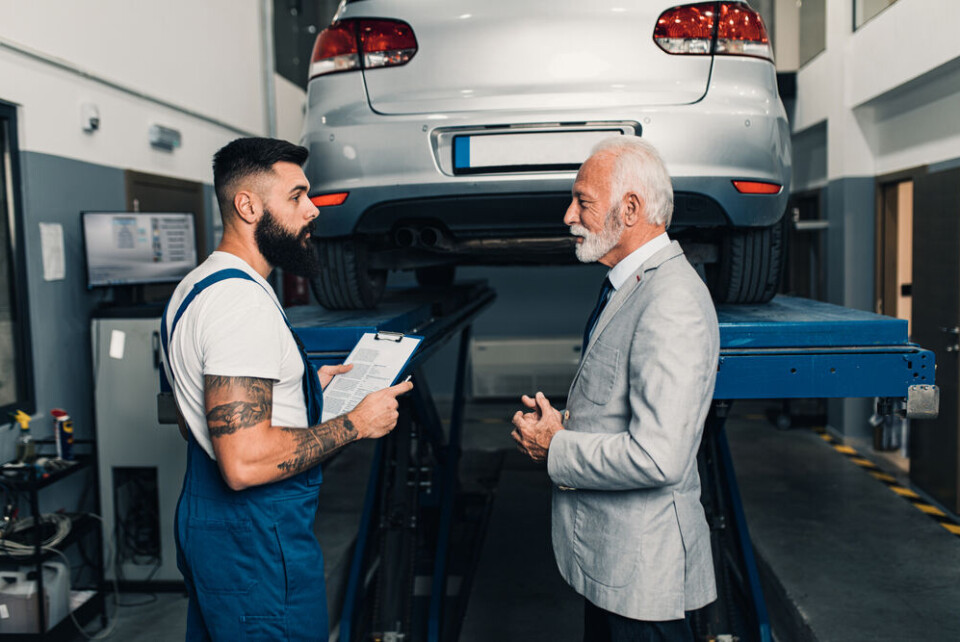-
Map: Car insurance costs rise in France - see the average in your region
Multiple studies show that costs are rising by around 5% year-on-year, with major differences by region and vehicle model
-
Second-hand cars: Understand new French tax that looms
The new ‘malus écologique’ will be calculated based on CO2 emissions, weight, and kilometrage
-
Tips to save money when hiring a car in France
From comparing deals to private swaps, and checking for extra costs and insurance, here is how
Experts can limit risk of a second-hand car purchase in France
Using an independent expert to check the vehicle and its history first can save you in the long run. It can also help you to negotiate the price down

The pitfalls of buying a second-hand car can often be avoided by getting an expert to evaluate a prospective purchase before parting with your money.
We spoke to Martine Rizk from BCA Expertise, one of the leaders in the field of supplying such experts, which operates throughout France.
“It can be especially useful if you are buying a vehicle from a long distance away,” she said. “We send a qualified independent expert who checks all the paperwork to ensure you are not buying a car which has been stolen or previously written off, or has unpaid speeding fines attached to it.”
In addition, the expert checks maintenance records and previous owners to ensure there are no problems transferring the carte grise. There is also an inspection of the interior, exterior and kilometrage.
“If a car has supposedly only done a few thousand kilometres but the steering wheel has been worn completely smooth, an expert would wonder if the kilometrage has been altered,” says Ms Rizk.
Checks include tyres, all fluid levels, and a test drive.
“If buying via a garage, the inspectors know them. They know which ones are long-established with a good reputation, and which are owned by people who open a new second-hand car business every six months.”
Read more:Why now is the best time to sell a second-hand car in France
She says faults are often found in the tyres and motor, and in big cities the bodywork at the four corners, which gets scraped.
“Faults in maintenance are the most common, however. Missed annual servicing or no receipts to prove the work has been carried out. This is important because these days a properly maintained car is a reliable one.”
Some experts guarantee their work, so if they say the tyres are in good condition and it turns out they missed a fault, they will refund their fee.
Ms Rizk warns that some dealers have been known to change tyres, radios and other spare parts once the inspection has been done: “We take photos of all the part numbers, everything, to prove their condition at the time of inspection.”
She added that buying imported cars carries additional pitfalls.
“We are careful with cars imported from Germany, Belgium or even further east because we cannot check whether they have been damaged in an accident, or even if they have been legally imported.”
She explains people often buy cheap cars, bring them to France, change the number plate and sell them on for sometimes double the price. Make sure you always see the user manual and see if it is in French.
“We get calls from people who have been ripped off this way, and we have a service to help them but it is expensive, time consuming and difficult.”
Read more:Process, costs, carte grise: How to register a car in France
The internet has made all sorts of fraud easier. Some adverts on leboncoin.fr are for cars that do not even exist. There are lots of photos and a low price, and when buyers get in touch, they are told to transfer a deposit as soon as possible. When they do, the seller simply disappears.
“Another scam happens when you advertise a car for sale and a so-called buyer asks for the carte grise and the MOT without even viewing the car. They then use these documents to steal your identity, or even fraudulently sell the car.”
As well as helping people buy second hand cars, experts can value them, including vintage and collectors’ vehicles.
“We also accompany people after an accident. They do not have to accept the valuation of the insurance company’s expert, and legally can employ their own.”
An expert’s opinion costs around €200-€250, and each offers slightly different levels of insurance.
They will also give you the means to negotiate the price by telling you the cost of other cars in similar condition and pointing out work which needs to be done soon, such as replacing tyres or a timing belt. There are steps you can take yourself to find out more about a car’s history, such as asking for a certificat de non-gage or certificat de situation administrative to show that the vehicle has not been stolen and is not subject to outstanding fines or litigation.
Read more:French drivers take Renault to court for alleged motor fault deception
Experts have to be qualified car mechanics first, and then spend two years training before passing their Diplôme d’Expert en Automobile (DEA). They can inspect any vehicle, including scooters, VSPs (voiture sans permis), campervans and electric cars (excluding the batteries, which can only be inspected by their manufacturers).
To secure the payment when buying from a website such as leboncoin.fr, you can use services such as obvy-app.com, which lists scams and offers an intermediary service where it takes your money, so the seller is sure it is available, and only releases it once the buyer has taken possession of the car. Fees range from €1-€50, depending on the amount.
Related stories:
Who should pay for my car damage caused by a pothole in a French road?
Can I use diesel alternatives to drive my car in France?
Drivers in France urged to advance car CT checks as garages swamped
























